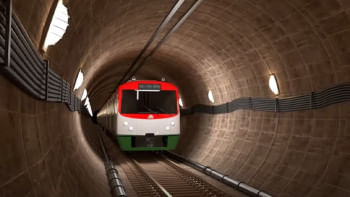Road to Freedom: This Day in Bangladesh Liberation War History

March 16, 1971
BANGABANDHU CALLS ON YAHYA
Bangabandhu Sheikh Mujibur Rahman met President Yahya Khan this morning. He arrived at the President's House in a car flying a black flag to mourn the death of those killed during the ongoing non-cooperation movement. It was an hourlong discussion. There were no aides on either side. Yahya started the discussion with explanation for his action in postponing the National Assembly.
Bangabandhu charged him with a grave blunder in failing to consult the leader of the majority party before taking such a decision. Yahya offered that he would find a way out of the present impasse. Bangabandhu told him that nothing short of acceptance of the demands raised by him on March 7, particularly the immediate withdrawal of martial law and the transfer of power to the elected representatives, would suffice.
Yahya expressed his reservation about the withdrawal of martial law, saying there were legal difficulties in withdrawing martial law before framing a constitution. Thereupon, Bangabandhu told him that he would ask legal experts to sort out the issue with the president's advisers.
The same evening, Kamal Hossain, directed by Bangabandhu, met Lt General Peerzada, principal staff officer to Yahya Khan. In reference to the immediate withdrawal of martial law, Peerzada argued that it would create a "legal vacuum".
Kamal Hossain countered the argument and said an Interim Arrangements Order (effectively a provisional constitution) could be in force during the interim period between the withdrawal of the martial law and the framing of a constitution. He further argued that this arrangement could be made by the same order by which the president revoked martial law. This argument was to feature prominently in the ensuing negotiations, shares Kamal Hossain. [Kamal Hossain, Bangladesh: Quest for Freedom and Justice, UPL, 2013, pp 91-92]
INDIA BANS FLIGHTS
The New York Times reported today that India banned flights of military aircraft belonging to any nation over Indian territory to East Pakistan. Pilots of civilian planes of other nations flying from West Pakistan to East Pakistan was told to make a "technical stop" in India, apparently to insure against transport of arms and military forces.
It may be mentioned here that earlier India had barred flights of Pakistani military and civil planes following the hijacking and blowing up of an Indian airliner last month by Kashmiri insurgents at Lahore. Bangabandhu termed the incident of hijacking as "a conspiracy by the Pakistan government to postpone the transfer of power" while Bhutto hailed the allegedly "Pakistani" hijackers as "national heroes". [GW Choudhury, The Last Days of United Pakistan, UPL, 2011, pg. 162]
Shamsuddoza Sajen is a journalist and researcher. He can be contacted at sajen1986@gmail.com


 For all latest news, follow The Daily Star's Google News channel.
For all latest news, follow The Daily Star's Google News channel. 



Comments